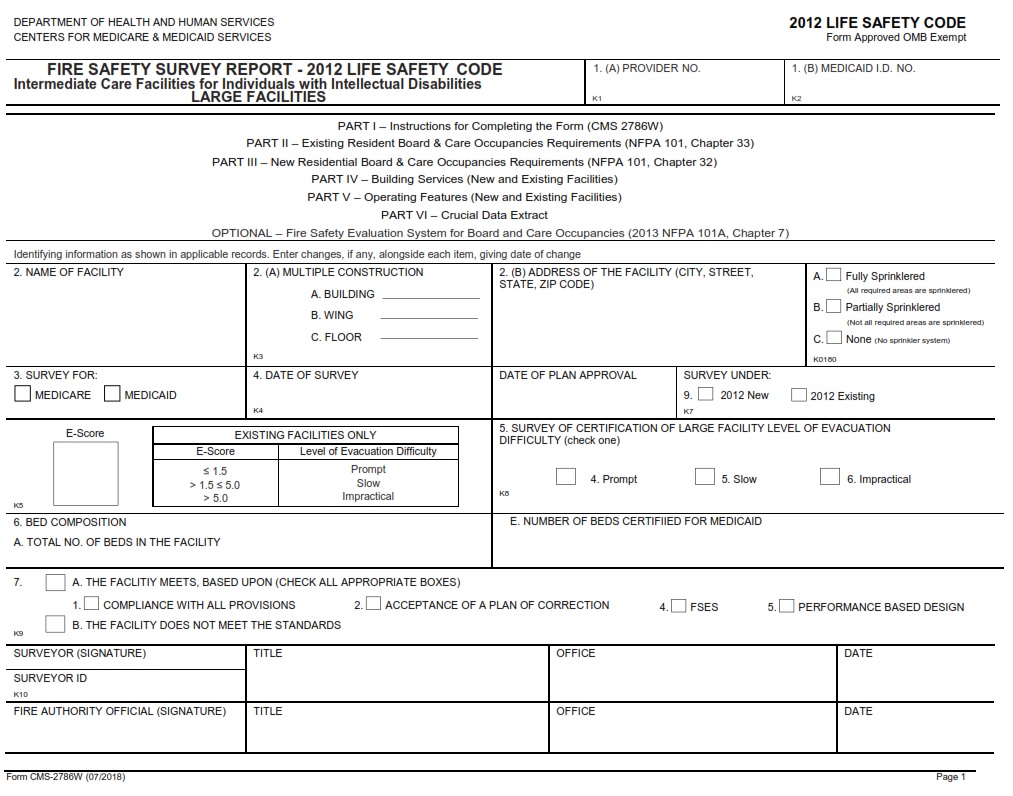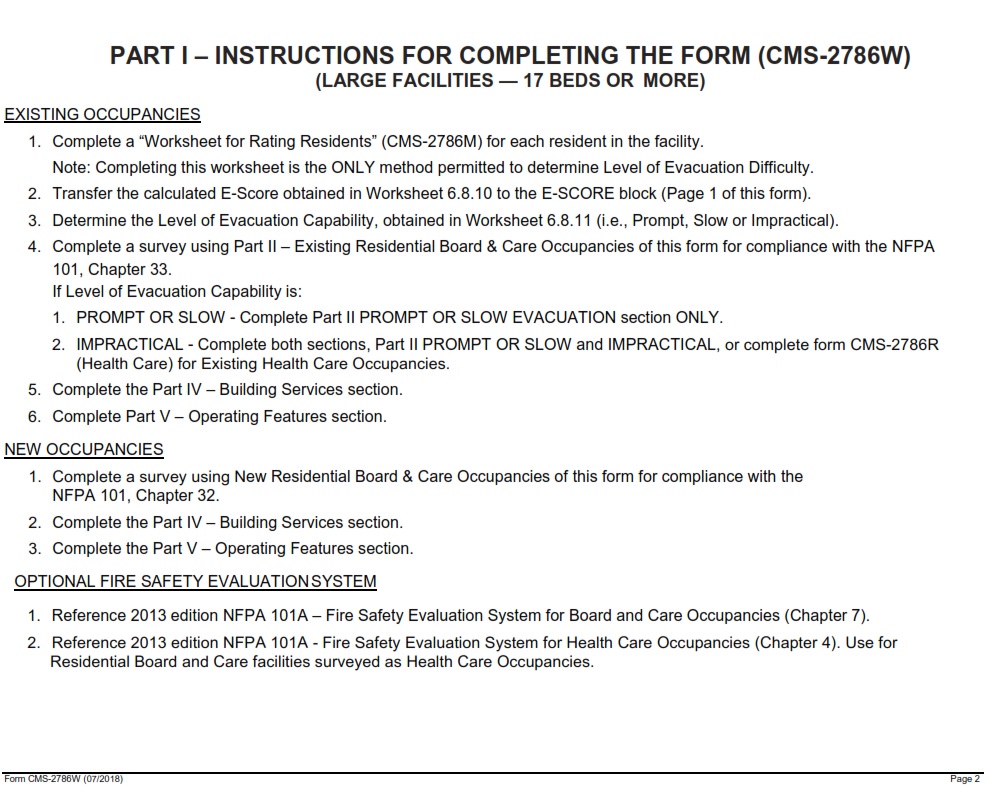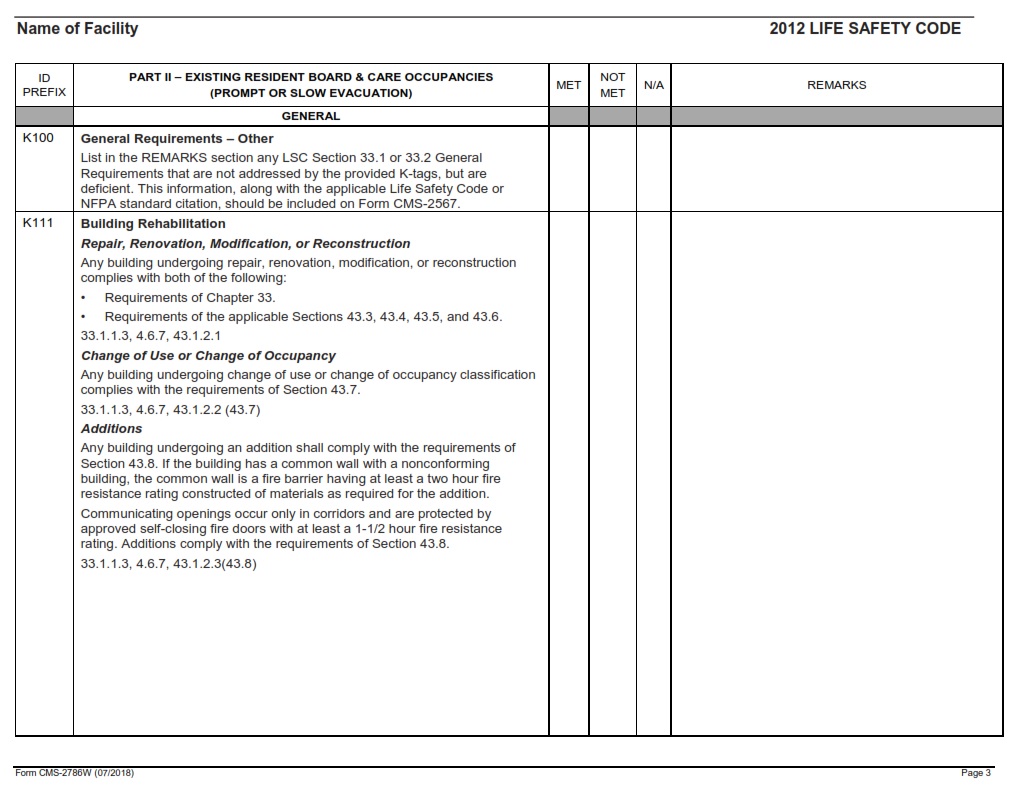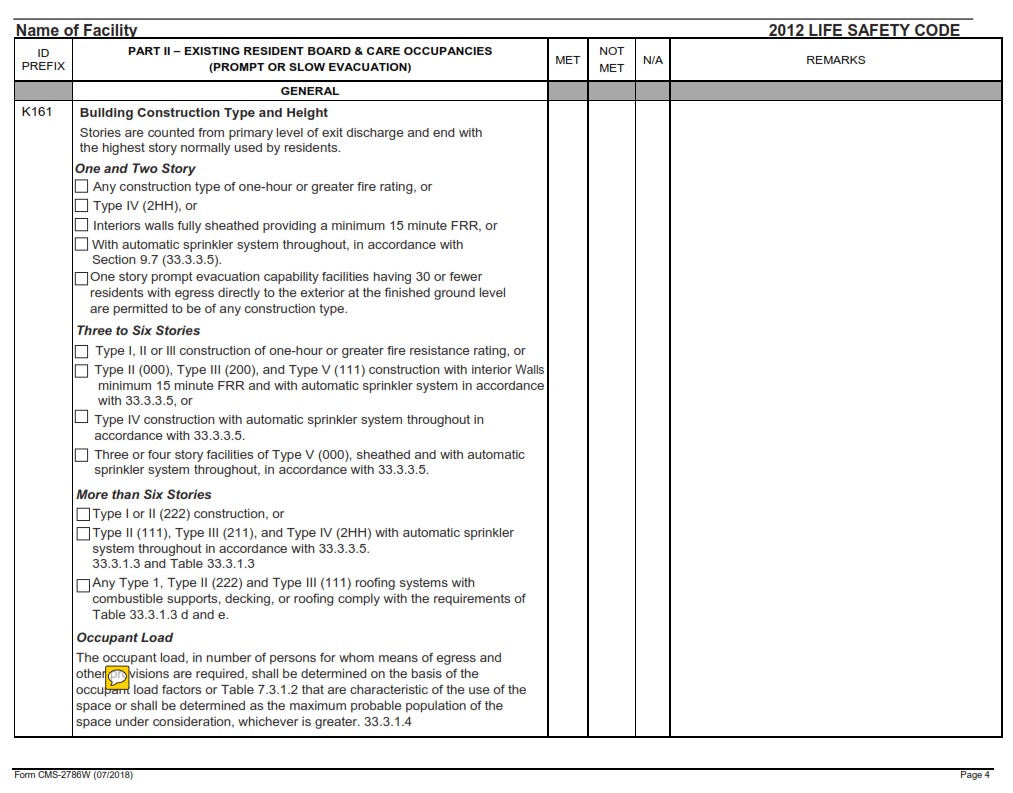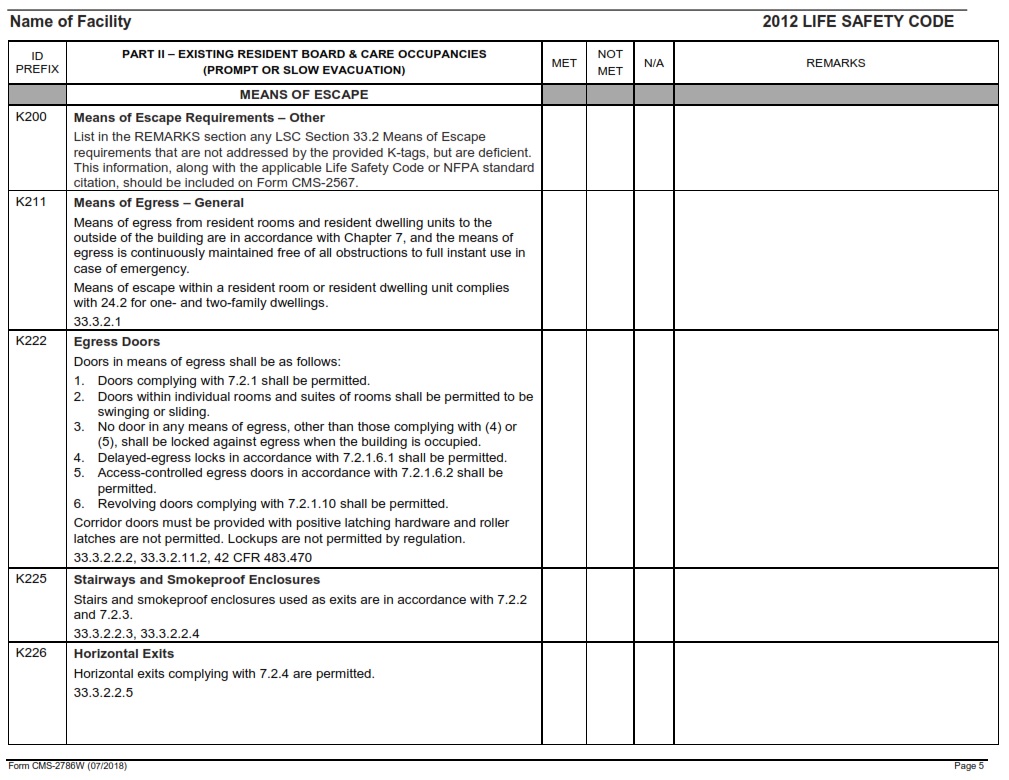CMSFORM.ORG – CMS 2786W – Fire Safety Survey Report – ICF-IID (Large Facilities) 2012 Life Safety Code – Fire safety in large facilities is a critical issue that demands careful attention and proactive measures to ensure the well-being of its occupants. The CMS 2786W Fire Safety Survey Report for ICF-IID (Intermediate Care Facilities for Individuals with Intellectual Disabilities) delves into the intricate details of fire safety protocols and compliance with the 2012 Life Safety Code. This survey report serves as a comprehensive guide, shedding light on the challenges faced by these facilities in maintaining a safe environment amidst potential fire hazards. From emergency evacuation plans to fire suppression systems, every aspect of fire safety is meticulously examined and evaluated in this report, offering invaluable insights into how these facilities can enhance their preparedness and response strategies. Join us on a journey through the corridors of fire safety regulations as we uncover the nuances of ensuring protection and security in ICF-IID large facilities.
Download CMS 2786W – Fire Safety Survey Report – ICF-IID (Large Facilities) 2012 Life Safety Code
| Form Number | CMS 2786W |
| Form Title | Fire Safety Survey Report – ICF-IID (Large Facilities) 2012 Life Safety Code |
| Published | 2018-07-01 |
| O.M.B. | – |
| File Size | 530 KB |
What is a CMS 2786W?
CMS 2786W, also known as the Fire Safety Survey Report, plays a crucial role in ensuring compliance with the Life Safety Code for ICF-IID large facilities. This comprehensive survey evaluates various aspects of fire safety measures in these facilities, ranging from building structure and fire alarms to emergency evacuation protocols. By conducting thorough inspections and assessments, CMS 2786W aims to identify any potential risks or deficiencies that could compromise the safety of residents and staff members.
Facilities subject to CMS 2786W are required to adhere to strict regulations outlined in the Life Safety Code, which serves as a benchmark for maintaining a secure environment. The survey report serves not only as a means of evaluating current fire safety practices but also as a tool for implementing necessary improvements and corrective actions. Through this ongoing process of evaluation and enhancement, facilities can enhance their overall level of preparedness and reduce the likelihood of fire-related incidents.
Where Can I Find a CMS 2786W?
If you are in search of a CMS 2786W form for a fire safety survey report related to ICF-IID facilities, there are several avenues you can explore. One primary option is to contact the Centers for Medicare & Medicaid Services (CMS) directly to inquire about obtaining a copy of the form. Additionally, some state health departments or regulatory agencies may have copies available for download on their websites or can provide guidance on where to access one.
For those looking to streamline the process and save time, reaching out to industry associations or organizations that specialize in healthcare facility compliance may prove beneficial. These entities often have resources and connections that can assist in locating the necessary documentation efficiently. Lastly, networking with other professionals in the field or attending relevant conferences and workshops could lead to valuable insights on where to find a CMS 2786W form for your specific requirements.
CMS 2786W – Fire Safety Survey Report – ICF-IID (Large Facilities) 2012 Life Safety Code
When it comes to fire safety in large facilities for individuals with intellectual and developmental disabilities (ICF-IID), the CMS 2786W Fire Safety Survey Report is a critical tool for ensuring compliance with the 2012 Life Safety Code. This code sets specific standards for fire prevention, detection, and response protocols that must be adhered to in order to protect vulnerable populations effectively. By conducting regular surveys and inspections based on this report, facility managers can identify potential risks, implement necessary changes, and ultimately enhance the overall safety of their residents.
One key aspect highlighted in the survey report is the importance of staff training and emergency preparedness drills. Ensuring that all staff members are adequately trained to respond swiftly and effectively during a fire emergency can make a significant difference in reducing potential casualties. Additionally, having well-practiced evacuation procedures tailored to meet the unique needs of individuals with disabilities is crucial in minimizing risks during such high-stress situations. By prioritizing education and readiness initiatives outlined in the CMS 2786W report, ICF-IID facilities can proactively mitigate potential fire hazards and prioritize resident safety above all else.
